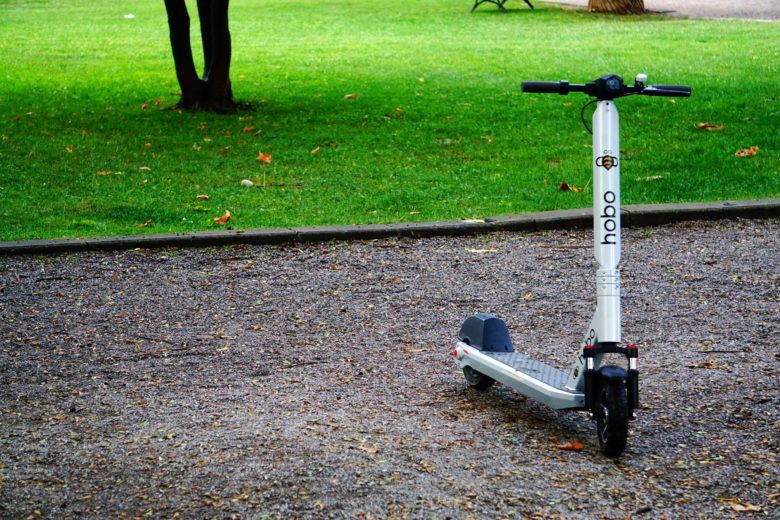Startups In Times Of Crisis Vol. 5: E-Scooters, Big Players On Hold And Newcomer Hobo’s Attempt To Stay Afloat With B2B Packages

Which startups won’t make it and which will go out of the crisis as winners. Events industry, travel, leisure, real estate, hardware, are the hardest hit sectors. Yet does it apply to the startups in these industries? Do tech startups stand the chance of losing the game for not having the financial resources to sustain, or will make it because they are flexible and adaptable. We ask founders from the most affected sectors.
With so many people staying home because of the coronavirus outbreak, the urban micromobility and shared e-scooters in particular, experience a drop of numbers. While the ride-hailing apps like Uber (a 42% decline of valuation) are facing a huge impact, some e-scooter companies decided to also stay home. Already in March, the large payers like Lime and Bird pulled back their vehicles from the streets and announced a pause of operations till further notice, saying this would help people “stay put and stay safe”.
However, there is more than one opinion about what is safe and what is not, as anything else related to this virus and the current situation. Lime & Co shut down temporarily to at least mitigate some of the maintenance costs, while rides numbers are unavoidably dropping. Although we don’t have exact numbers, we guess that after the winter, numbers had anyway declined and the following crisis measures will hit companies with no large investments and cash reserves hard, at least in the short run. And while big brands play safe, some smaller companies are trying to use the situation to strengthen their positions in local markets. For instance, the Swedish VOI is now responding to the situation by locating vehicles near supermarkets and hospitals, to help people who anyway need to go to work and don’t have public transportation. Berlin-based Windy Mobility is also having a similar approach helping healthcare and grocery shop workers, they’ve also removed the unlocking fee for them. The smaller companies see the current situation as an opportunity for a mindset shift, in the long run, they declare. Yet, could it be a chance to also take leadership positions within their markets too?
We spoke to Teodor Rachev, the founder of the shared e-scooters company Hobo. Launched in September 2019, with an initial angel investment of €120K, he has a fleet of around 100 vehicles in the Bulgarian capital city Sofia. The model is the same as Lime & Co’s, with a small exception – it offers monthly subscriptions too, the prices are also a bit lower than the ones of the competition (read more here). In the four months of operations last year, the company scored a five-digit number of rides and experienced a smaller drop in winter than they expected. Unlike Lime who want to help people stay put, Hobo has adopted an alternative approach for the short run, while optimizing for the longer term.
Trending Topics: How is Hobo business doing at the moment? What’s the effect of the crisis on your business? What do numbers say?
Teodor Rachev: The state of emergency affects all the people and a lot of businesses as well. Naturally, the mobility sector is very vulnerable. It is understandable that rides are less, as most of the people stay at home. For the moment, the most important thing for us is to maintain the health of our employees and users. That is why we have taken the necessary measures – the shifts of our team responsible for charging are reduced to the bare minimum, the managing team works at home. Regarding the health of our users – we disinfect our scooters regularly and constantly remind them that if possible, it is better to stay at home and ride only if it is indispensable.
How long do you think it will last?
This is a question without a straightforward answer. What is important for now is to withstand and when it is all over to come out stronger. We try to stay positive and focus on strategical plans for the future.
Lime pulled back their scooters? Why are you still on the streets?
Ensuring the health and safety of the community is our shared responsibility. The electric scooters are an independent means of transport which makes them a safe alternative minimizing the risks of public transport because the user is alone during his ride.
Taking all this together with the fact that there are the people on the front line that need to perform their daily professional duties we decided to run the hobosupport campaign. It is focused on these anonymous everyday heroes – medical workers, pharmacists, police, the staff at supermarkets, volunteers, that can’t avoid going out. We are locating our scooters in such a way so that they can respond to the needs of these people that are there for all of us. If anybody feels the urge to go out, we invite them to contact us.
What is your company’s immediate response to the situation?
Just a few days after the emergency was declared the very first thing we did was to launch an email campaign through which we could reach our active users. We wanted to communicate openly with them the measures that we undertook and continue to implement on a daily basis. We advise people to stay at home but in case they need to go out and get faster and more important, independently from point A to point B, to choose riding the e-scooters. We disinfect them systematically and regularly and yet we recommend wearing gloves. We are a micro mobility-company and as such we do what we are best at – offering an alternative means of transportation, aiming at the seriousness of the matter and advising whoever has the option, to stay at home.
What are the major challenge and biggest opportunity for Hobo?
The major challenge has been the same since the beginning – shifting the people’s perspective on this way of transportation. It doesn’t aim at excluding biking or walking, nor the public transport, it is here with its benefits to offer an alternative for transportation. Especially in these times, it is important to note that moving on your own is the best one can do. The emergency has given us time to rethink our strategies for the future and at the same time proved that there is a need for an alternative means of transport, people on the front line are already contacting us.
Last but not least, in the absence of our main competitor (Lime pulled back all e-scooters around a month ago), we see an opportunity and we will put all our efforts into becoming number one leader satisfying the already existing demand on the market.
What are the alternative services/products you are thinking of at the moment?
Since the very beginning, we at Hobo have been putting our efforts in establishing longstanding partnerships with the business sector.
We are thinking about offering exclusive business to business solutions to delivery companies, but not only. We are using the time we have wisely and once we come up with a solution it will be announced to the public.
Are you focused on short-term survival or on the longer game?
One can’t go out without the other. We are taking all the necessary measures to ensure the most important thing at the moment – the safety and health of our users and employees. At the same time I remain positive and believe that once everything passes, the micro-mobility will continue proving its place on the urban stage. That is why we are evaluating our first operational season and getting ready with new and fresh B2C and B2B opportunities for the upcoming operational days.
This may also interest you:
Vol. 2: Housing Tech, Gaida.ai And Setting The Rules Of The New Upcycle
Vol. 3: Events Industry And Evedo’s Pivot
Vol. 4: Airlines Industry and Traveltech startup Colibra’s new financial product




























